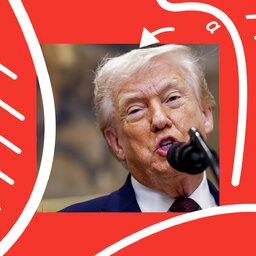63: How to Get a Job After You Commit a Felony
Millions of Americans could help solve a looming labor shortage for certain U.S. industries. Problem is, they're felons. Are ex-cons who can't get jobs holding back economic growth? Join us on Benchmark this week to hear from Keri Blakinger, who served time in state prison for heroin possession before getting out, finishing college (at Cornell) and managing to get a job in, of all things, journalism. What's it like to go to an office cubicle from a prison cell?
 Trumponomics
Trumponomics


